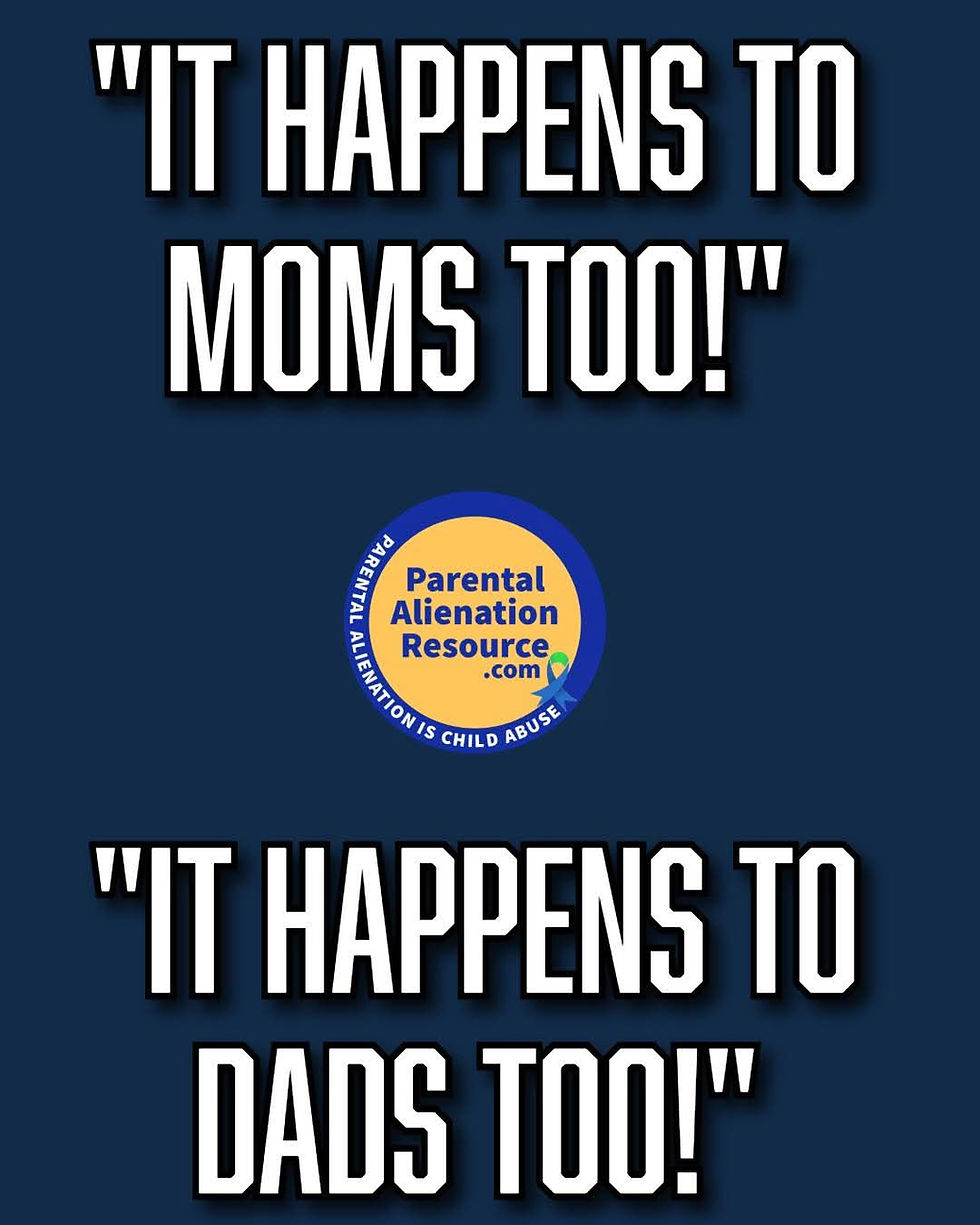Why must alienating parents befriend their children’s friends and their friend’s parents?
- Parental Alienation Resource

- Mar 1, 2024
- 2 min read

Alienating parents may make it their mission to befriend their children's friends and their parents as part of their manipulative tactics in parental alienation cases for several reasons.
By forming relationships with their children's friends and their parents, alienating parents can isolate their children from their other parent and their support network. This tactic aims to create a sense of loyalty and dependency on the alienating parent, making it harder for the child to maintain relationships with the targeted parent and their allies.
By infiltrating their children's social circle, alienating parents can exert influence and control over the child's interactions and activities. They may use these connections to monitor the child's behavior, manipulate their perceptions, and limit their exposure to the targeted parent or conflicting viewpoints.
Alienating parents may seek validation and reinforcement of their negative narrative about the targeted parent from the children's friends and their parents. By surrounding themselves with individuals who align with their perspective, they can further justify their actions and bolster their position in the eyes of others.
Building relationships with the children's friends and their parents can also serve as a form of public relations for the alienating parent. It creates a facade of being socially involved, friendly, and connected within the community, which can help enhance their image and credibility, especially when attempting to portray themselves as the better parent or victim in the family dynamic.
Alienating parents may use their relationships with the children's friends and their parents to emotionally manipulate the situation. They might gather information or spread misinformation about the targeted parent, creating a toxic environment that fosters division and conflict among families.
By involving third parties, such as the children's friends and their parents, in the manipulation tactics, alienating parents can create a triangulated dynamic where the child feels pressure to choose sides or align with the alienating parent's agenda. This further complicates the child's emotional well-being and contributes to the erosion of the parent-child relationship.
Alienating parents may attempt to undermine the relationships between the child and the targeted parent by portraying the targeted parent in a negative light to their social circle. This can lead to misunderstandings, mistrust, and fractures in the child's support system, impacting their sense of security and stability.
In severe cases of parental alienation, where the alienating parent engages in coercive and manipulative behaviors, legal intervention may be necessary to protect the child's best interests and ensure a healthy parent-child relationship. Seeking legal guidance and documenting instances of alienating behavior can be crucial steps in addressing parental alienation from a legal perspective.
It's important to recognize these behaviors and understand their underlying motivations in cases of parental alienation. Building awareness, seeking professional guidance, and fostering open communication with all parties involved can help address these tactics and protect the well-being of the child caught in the middle.









Comments